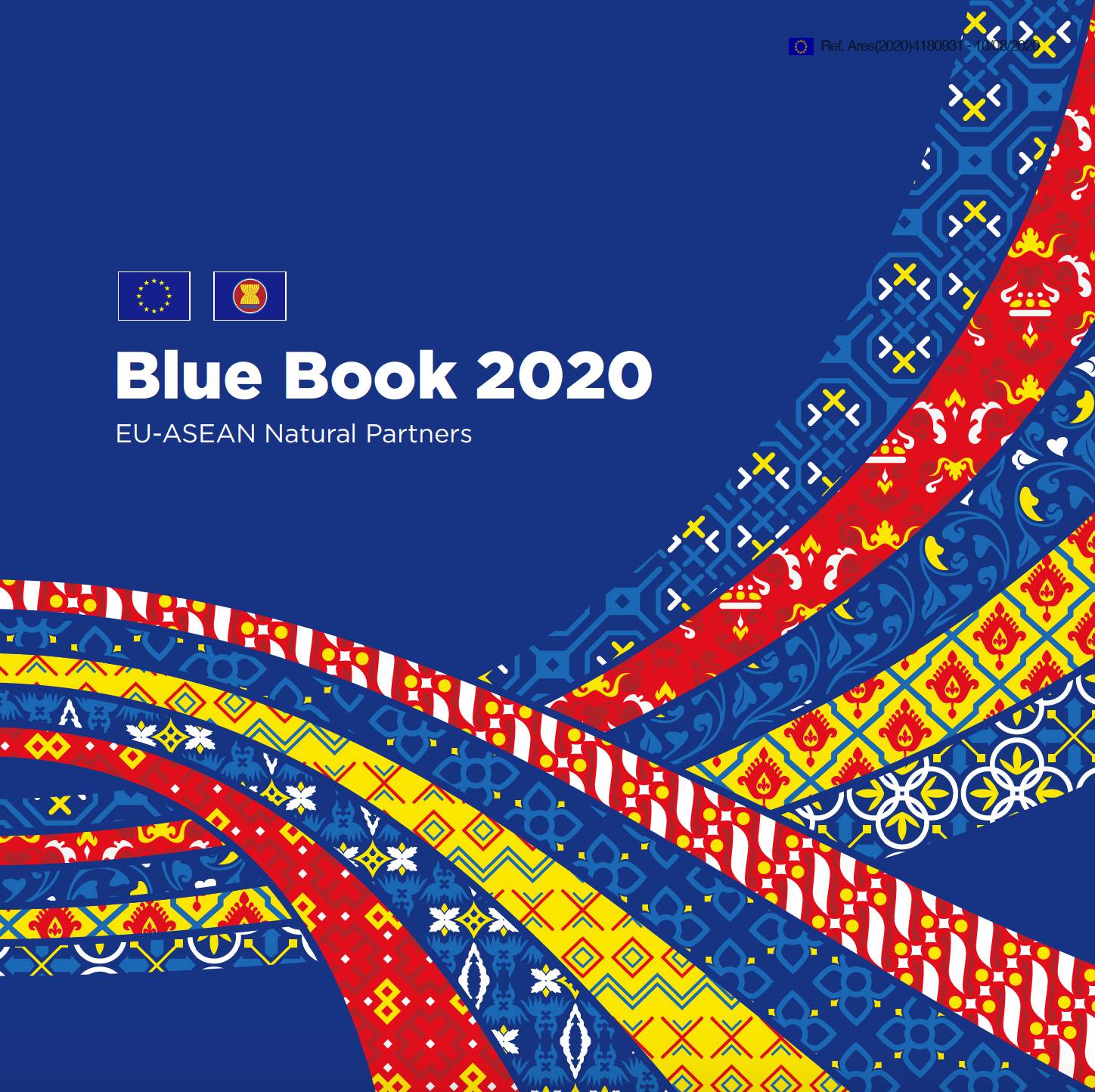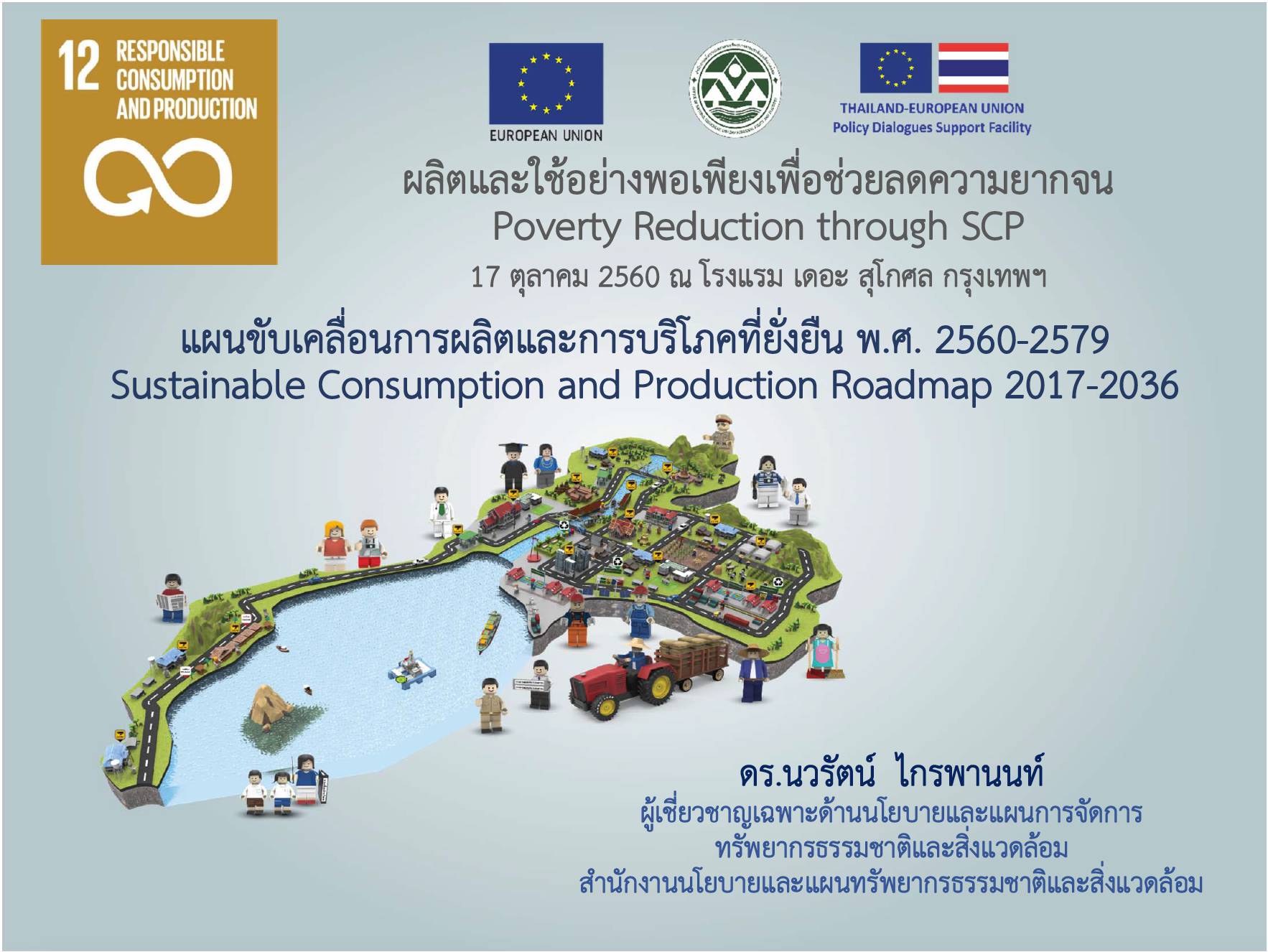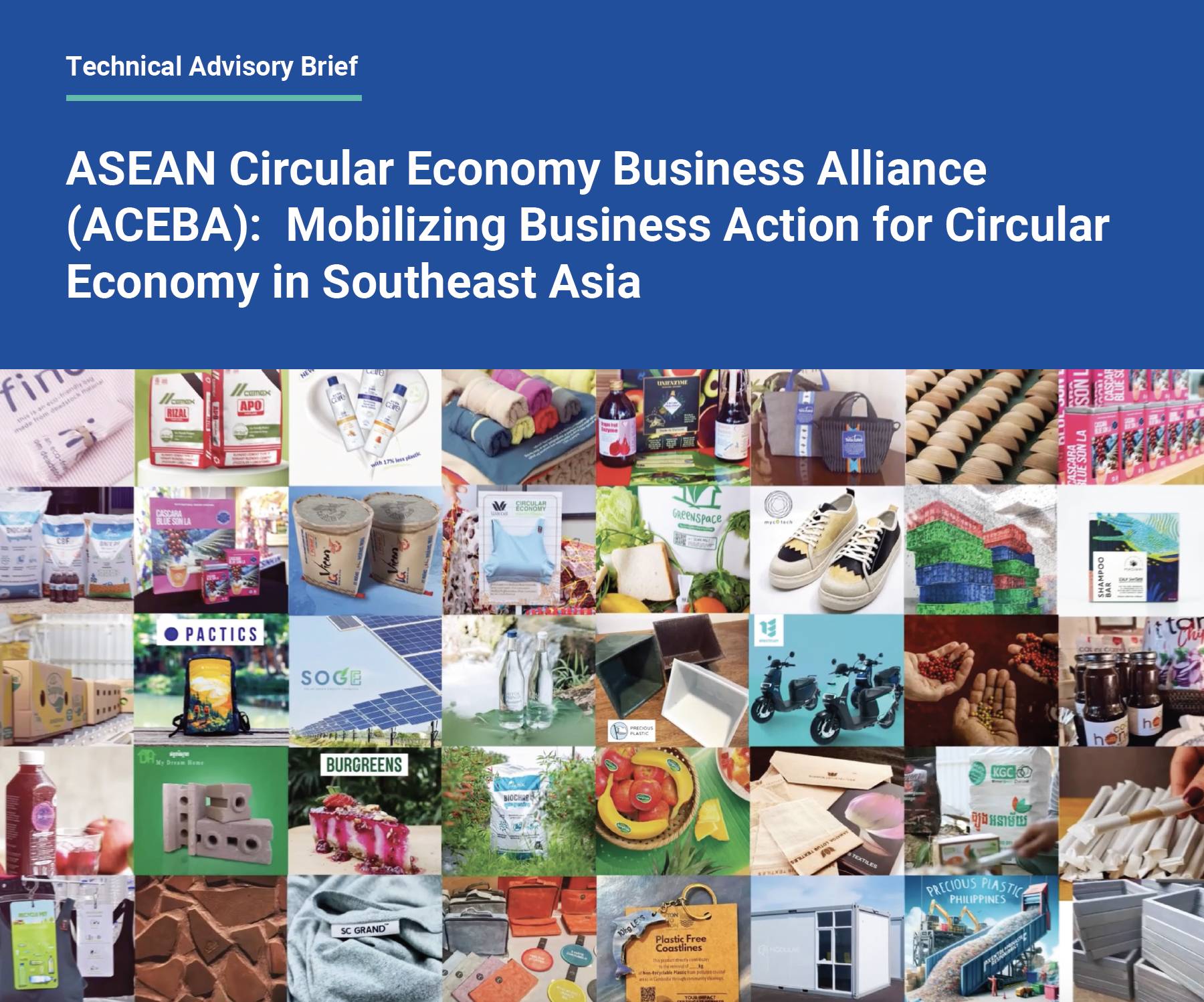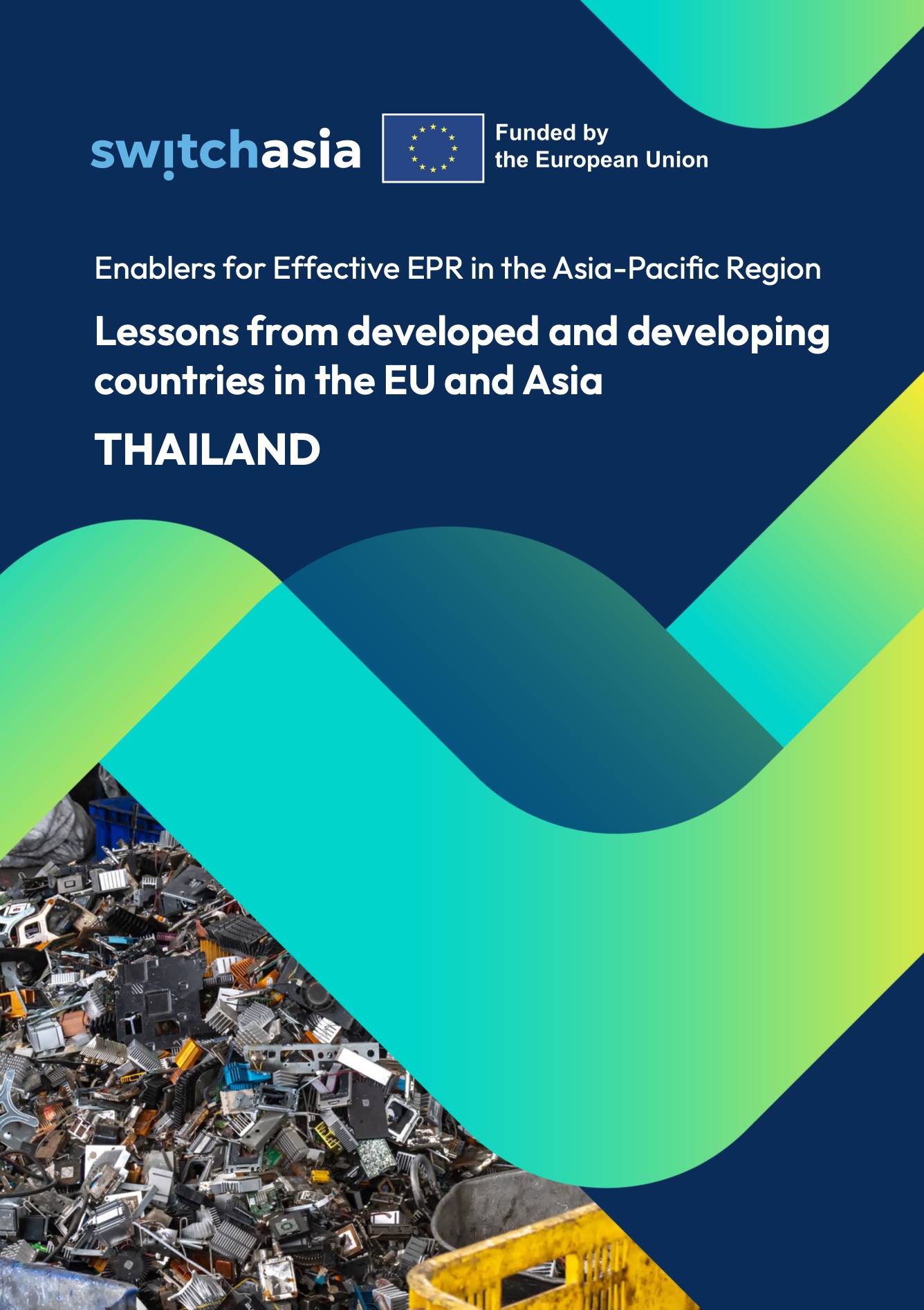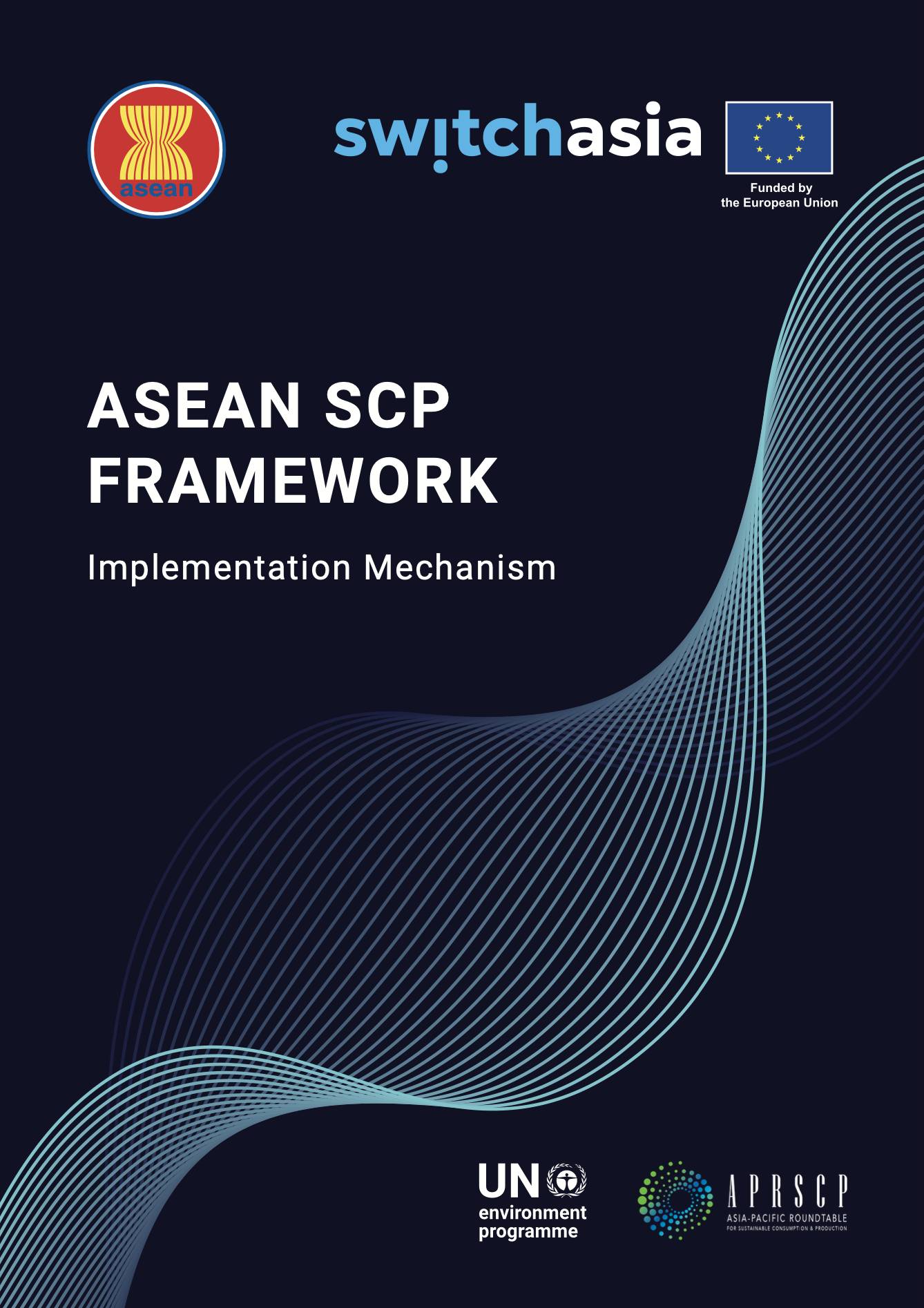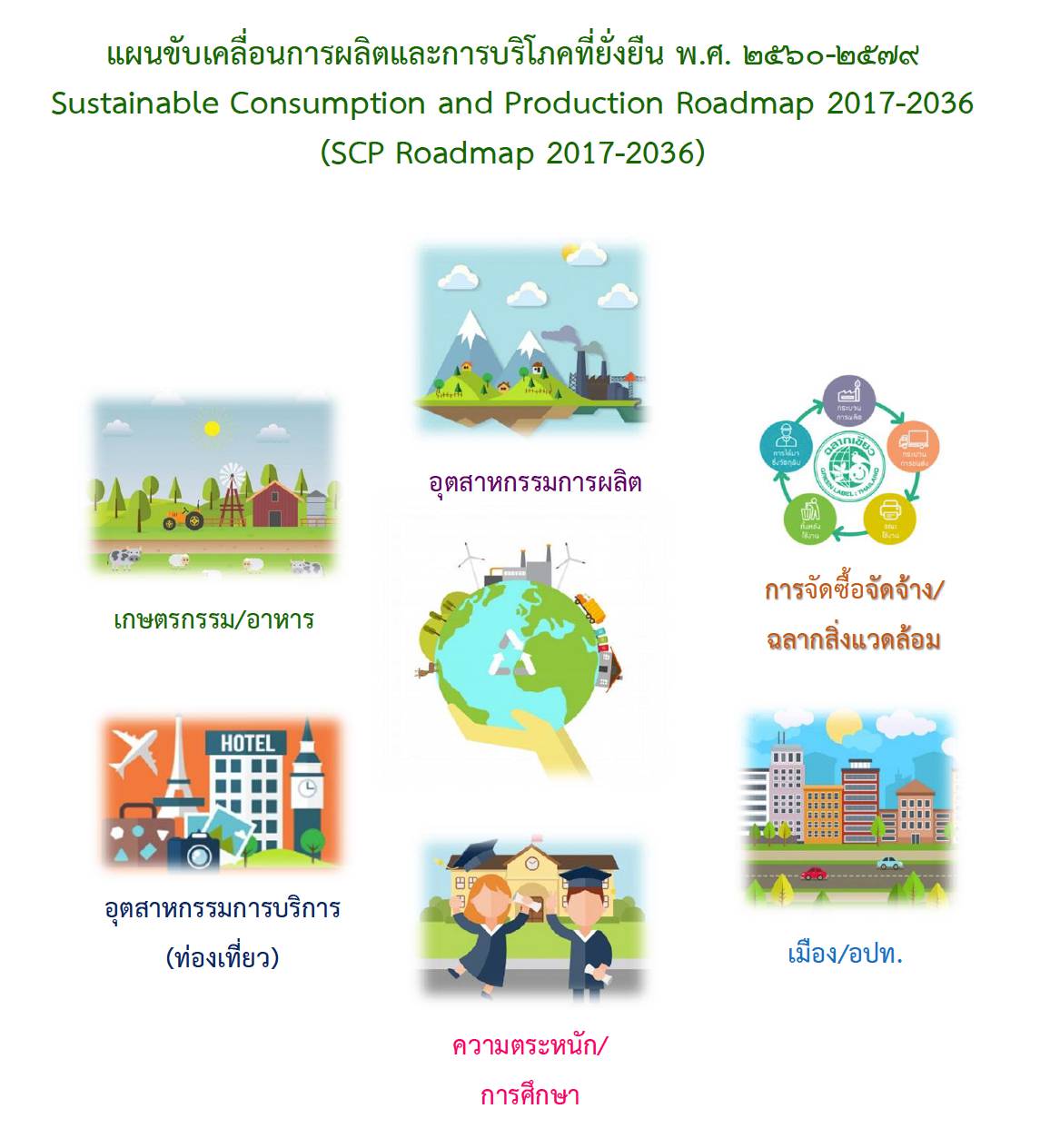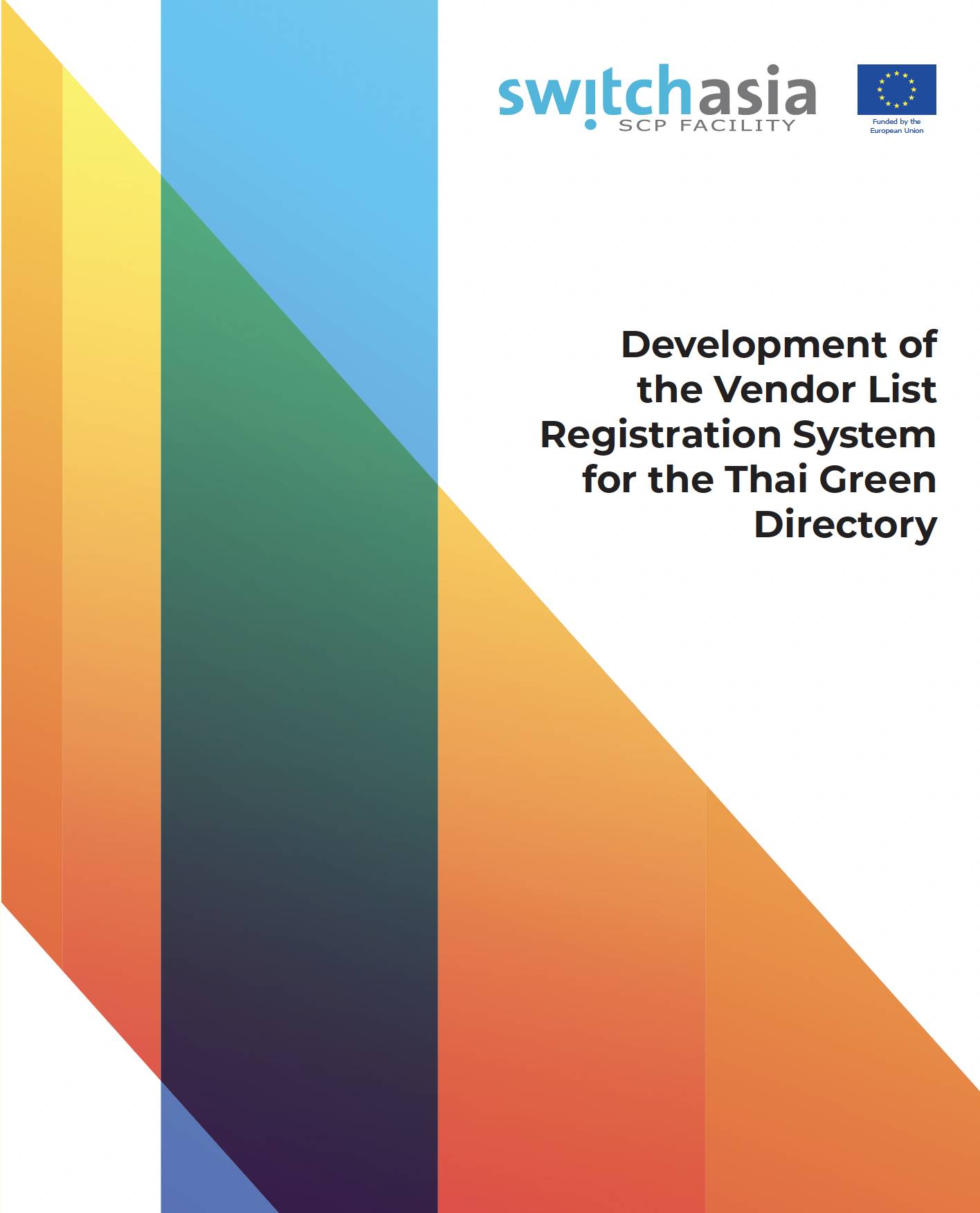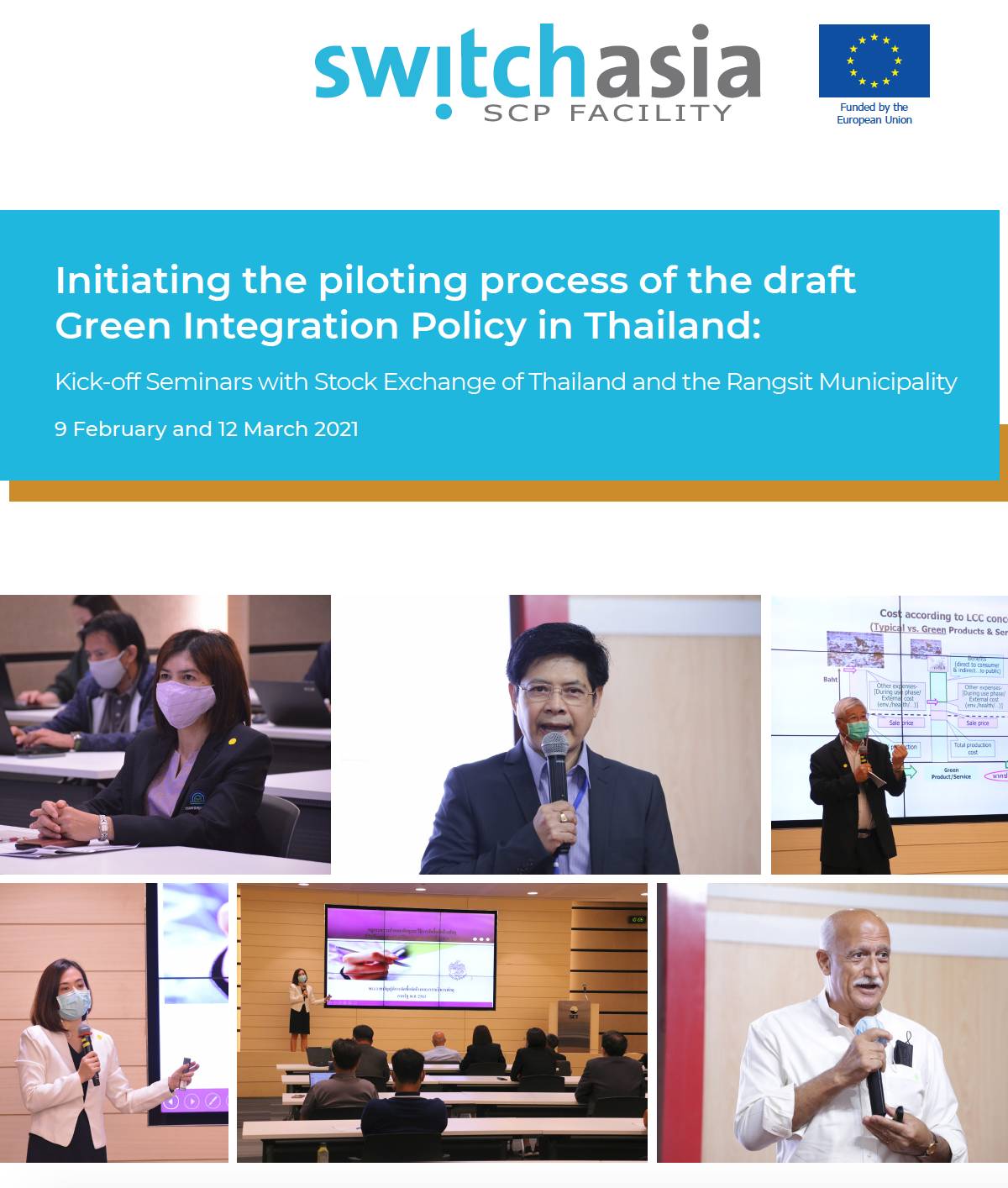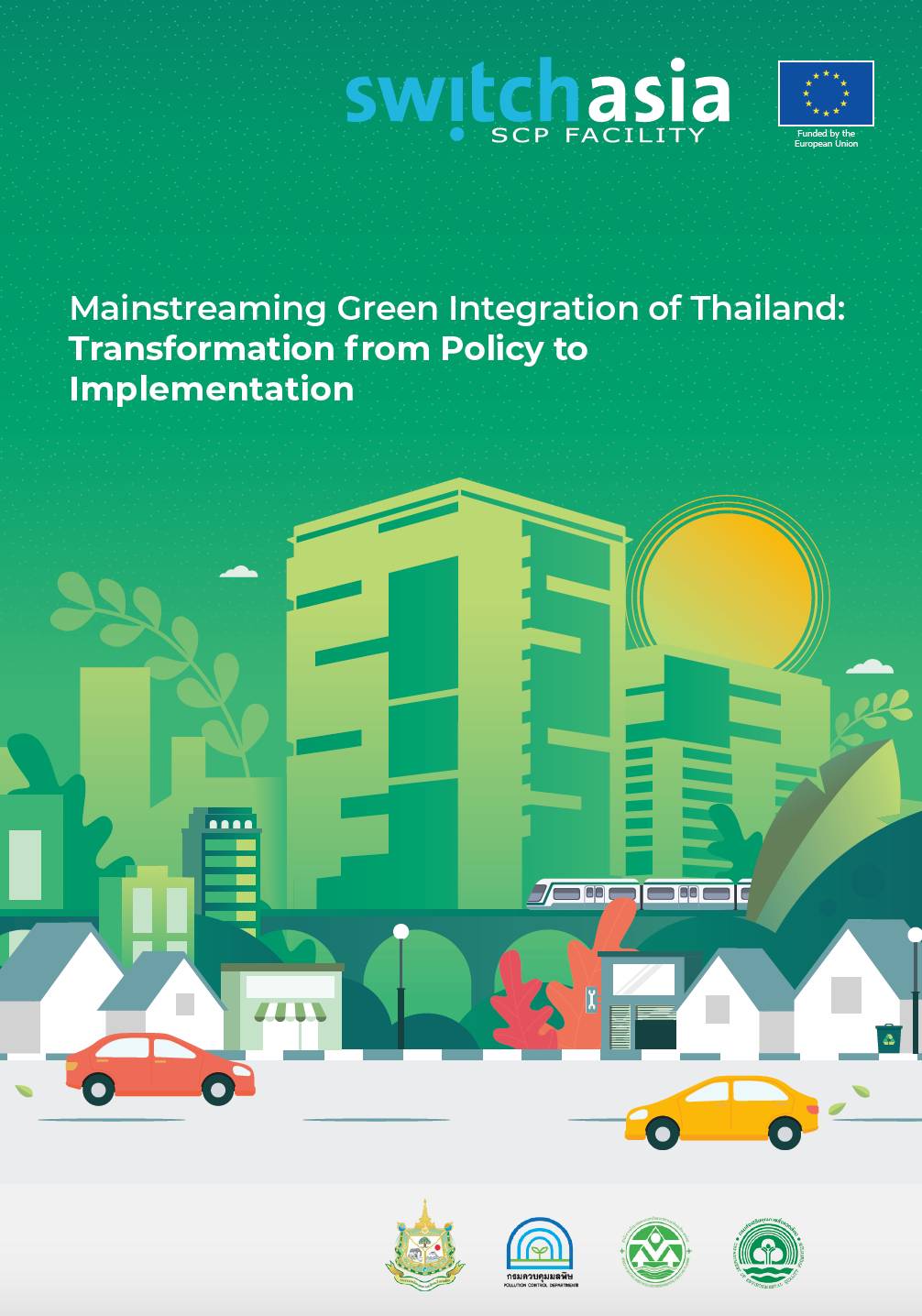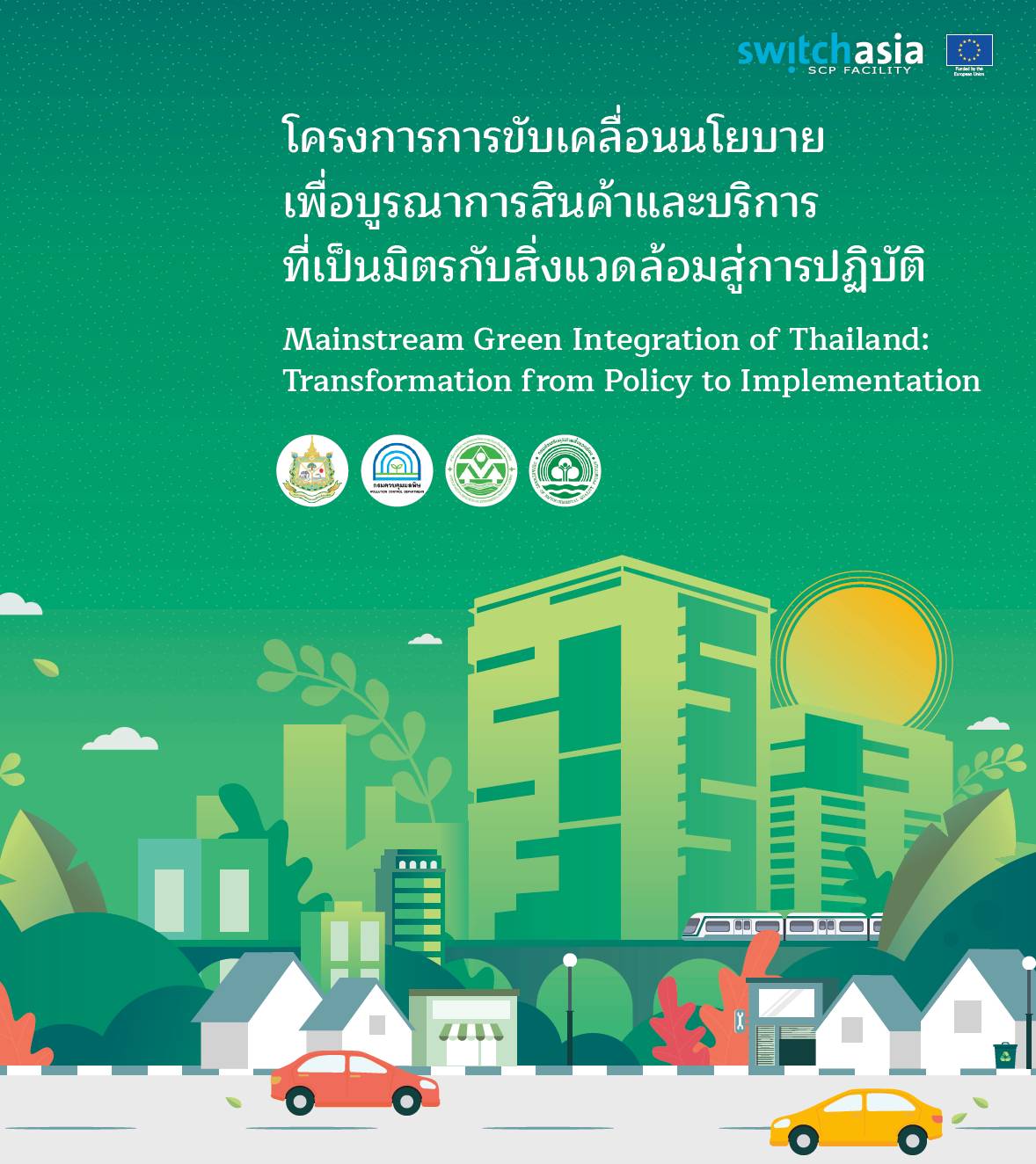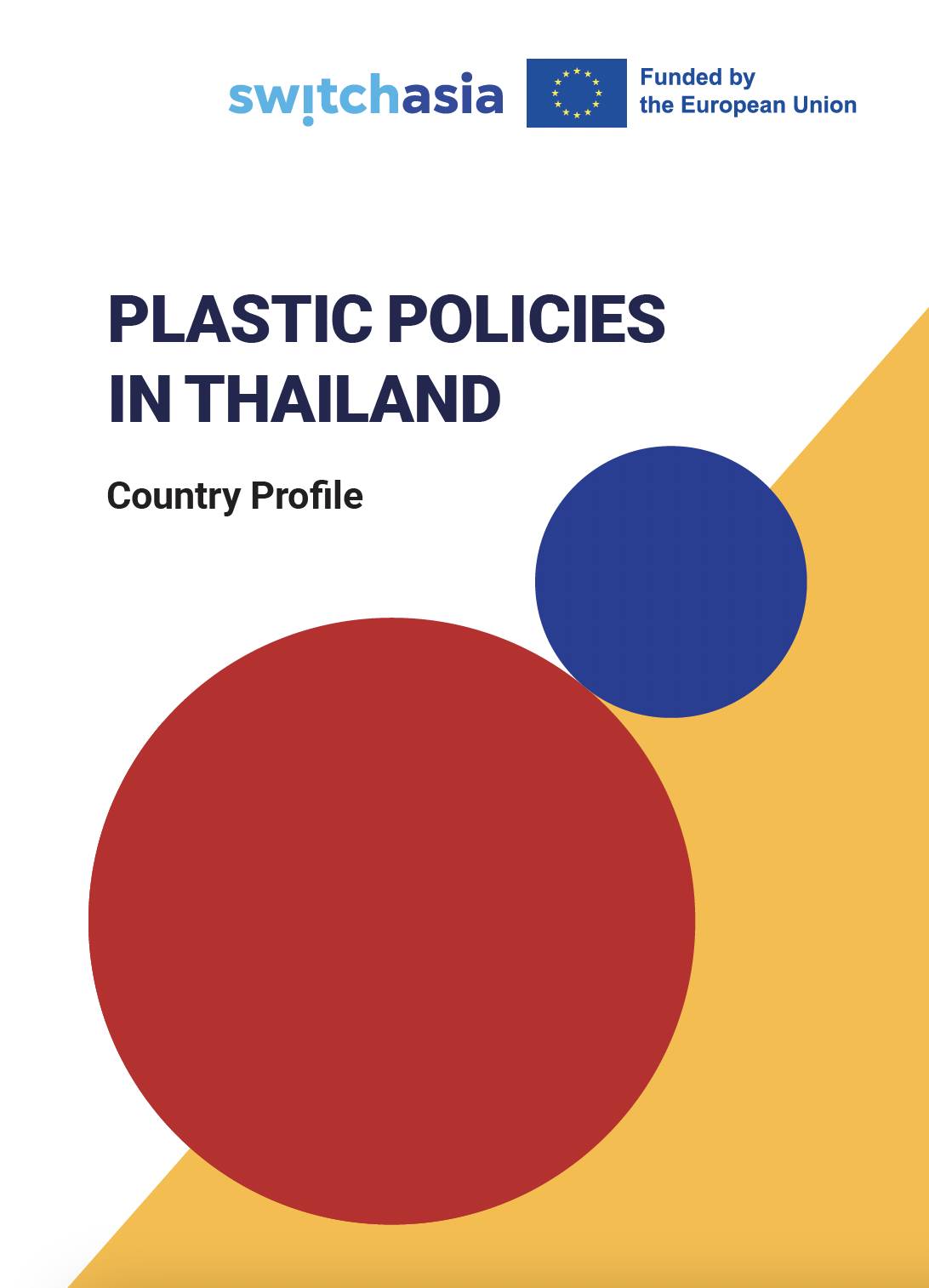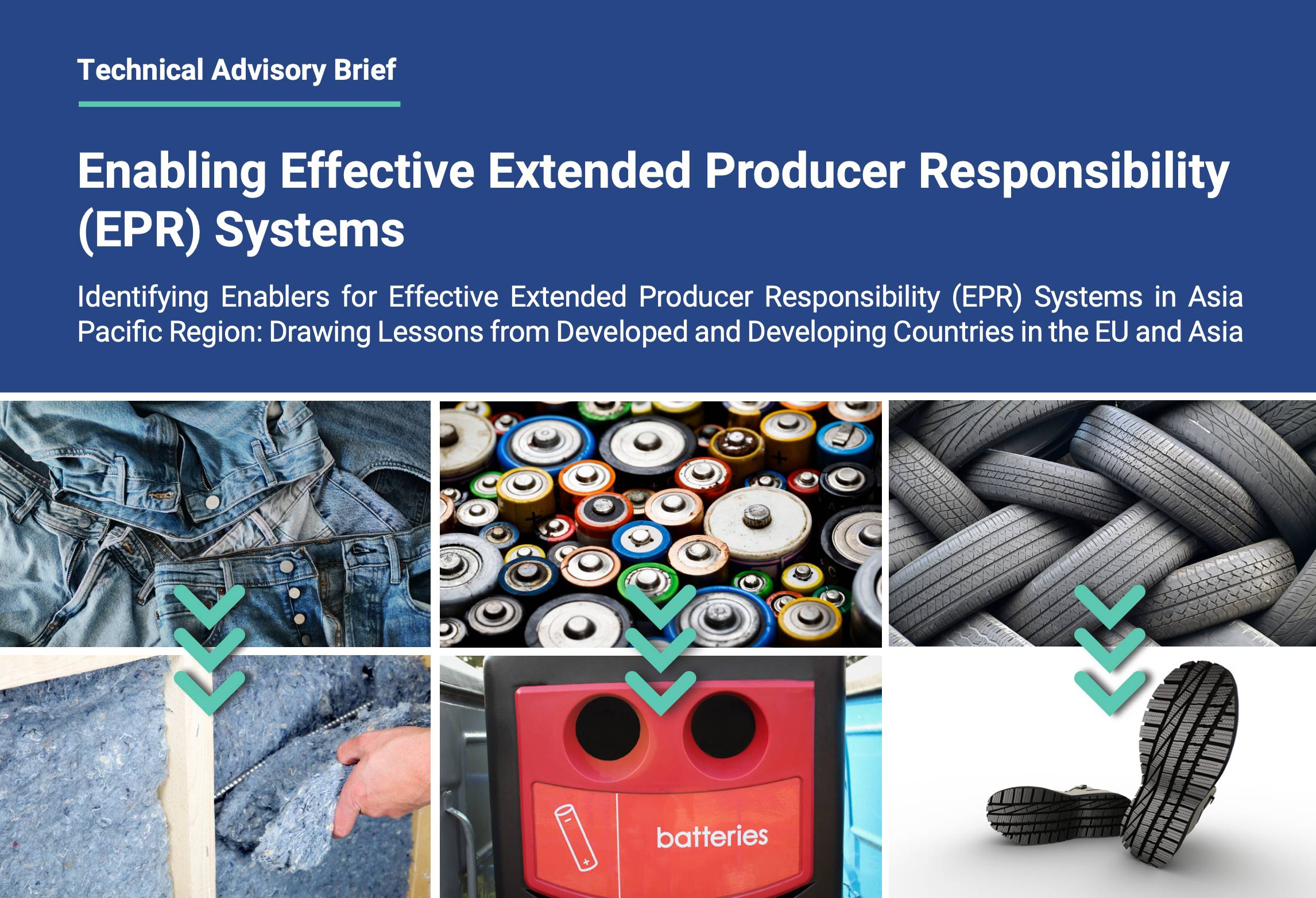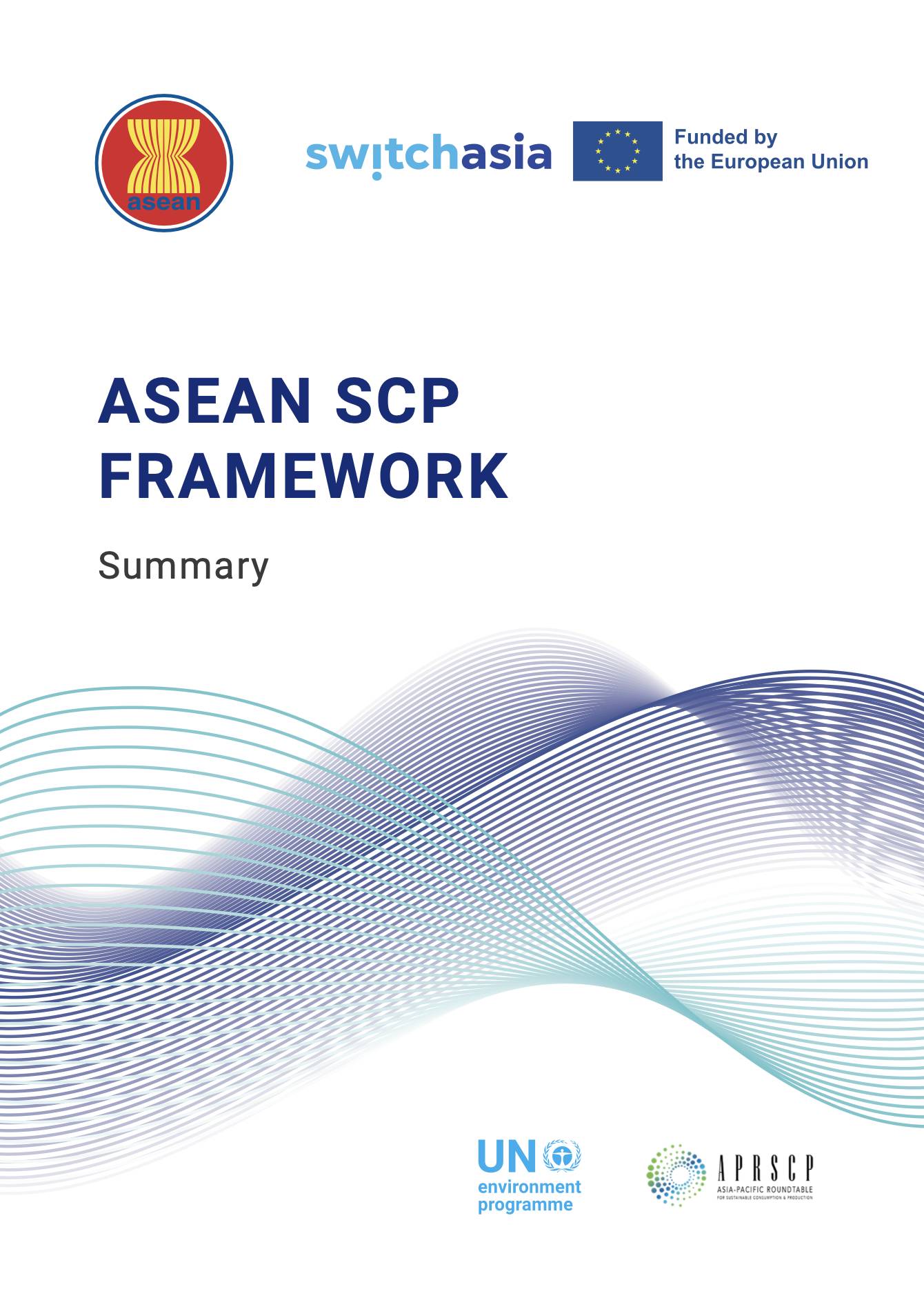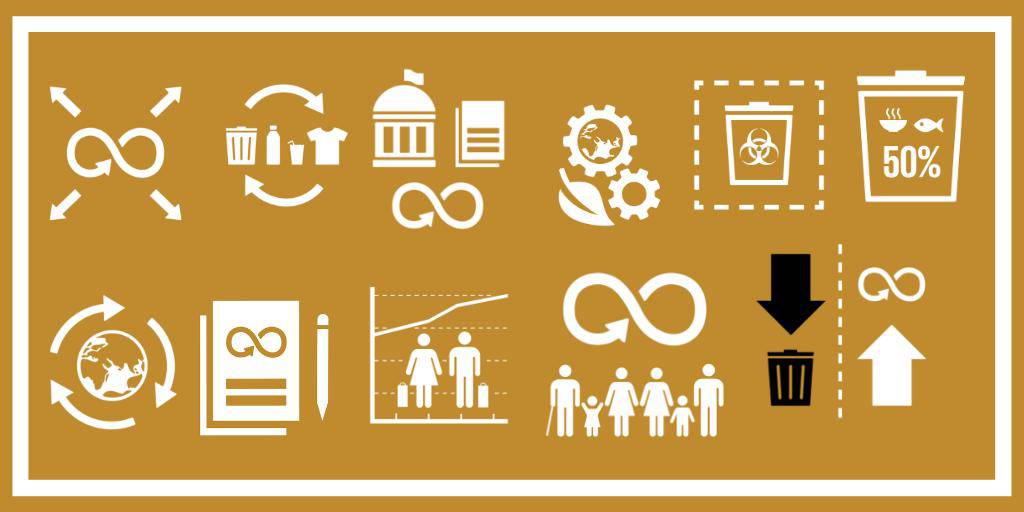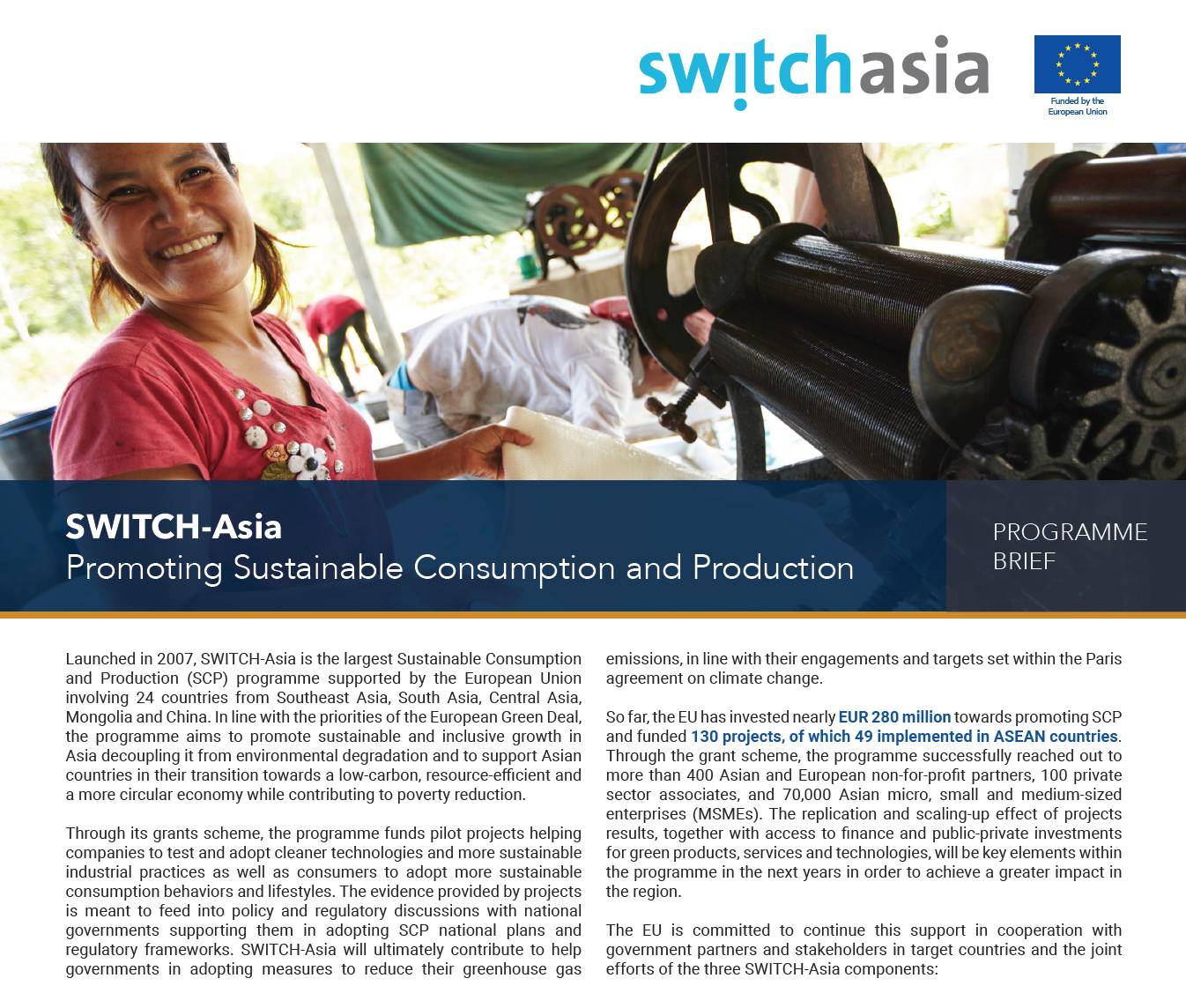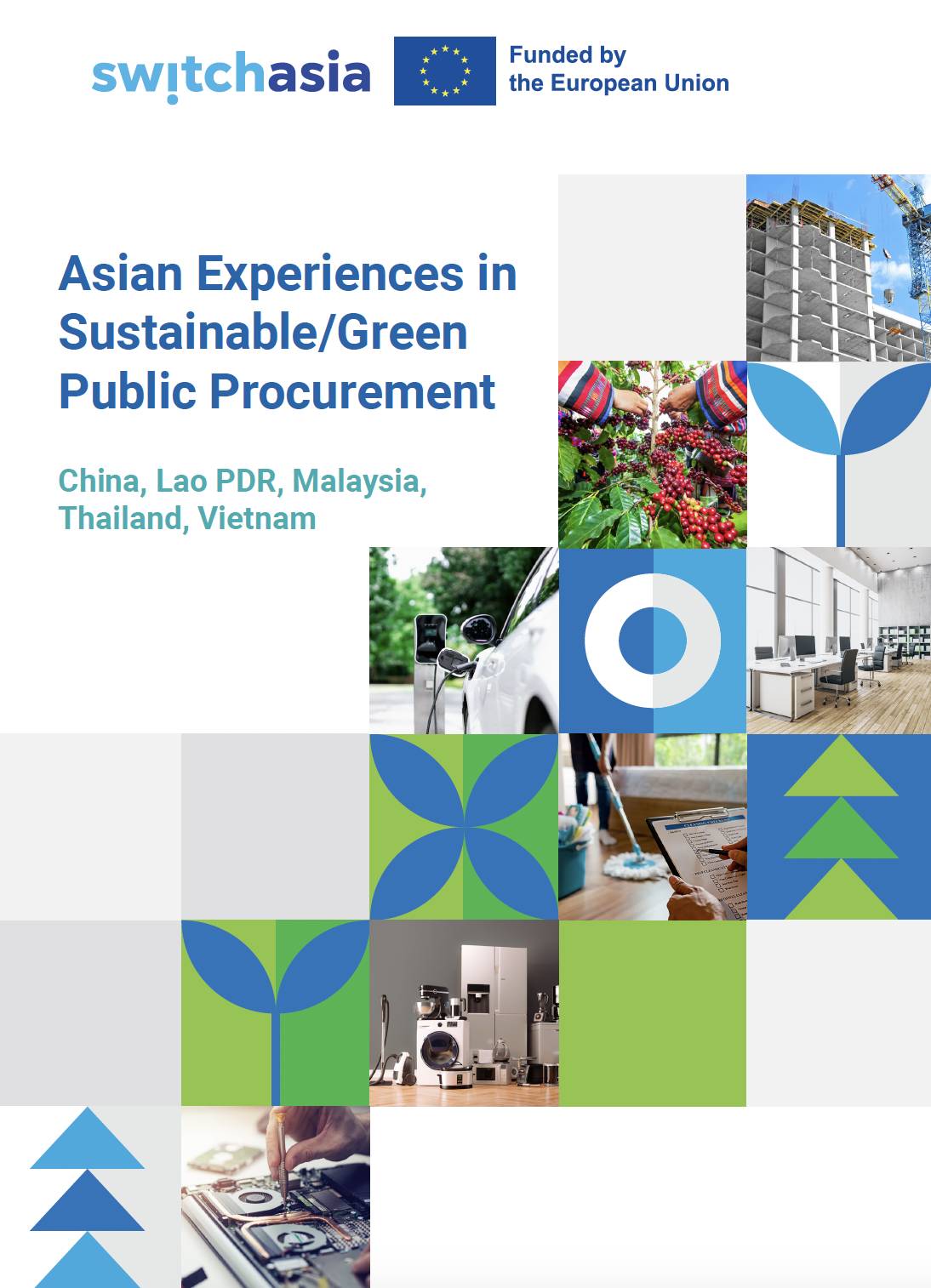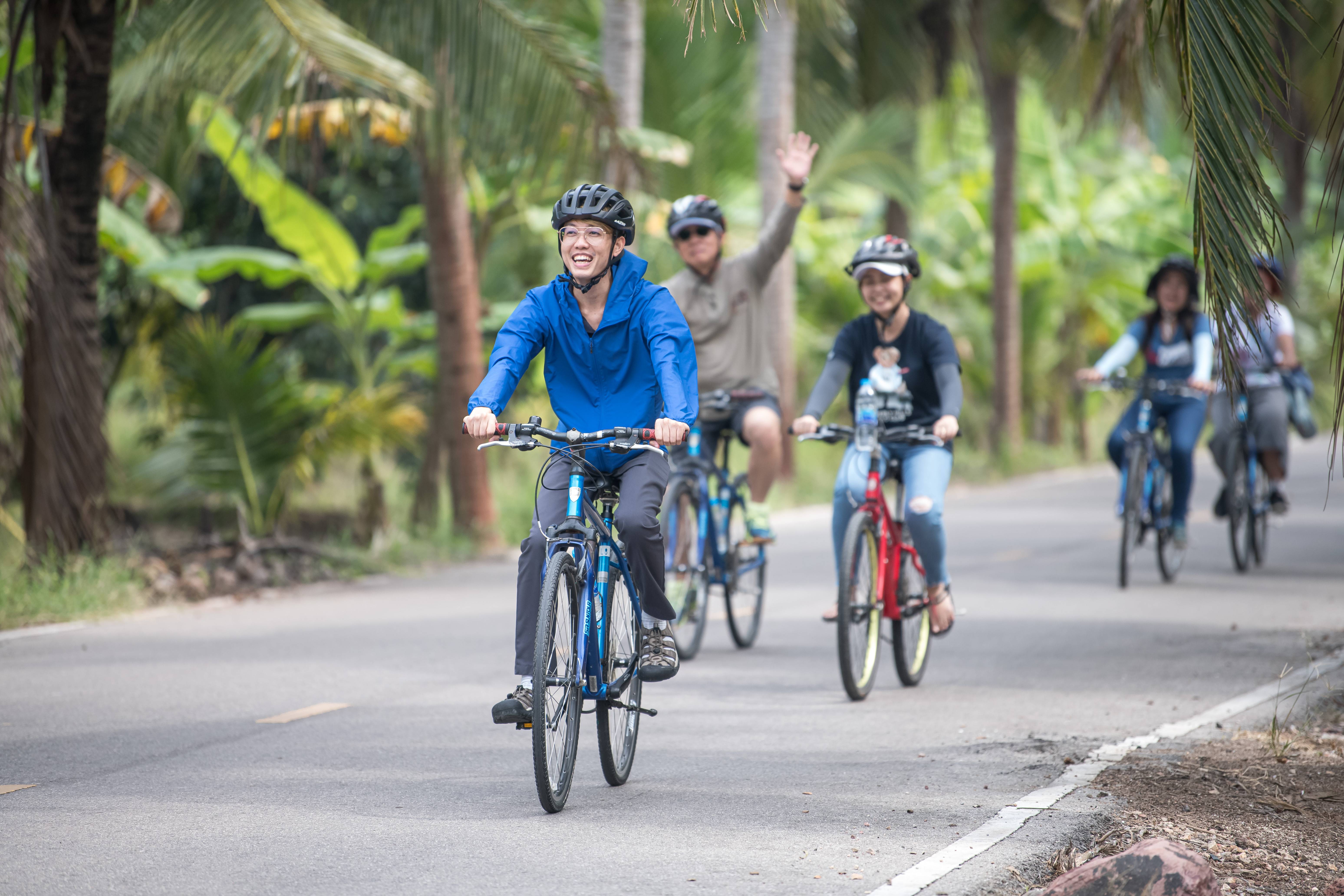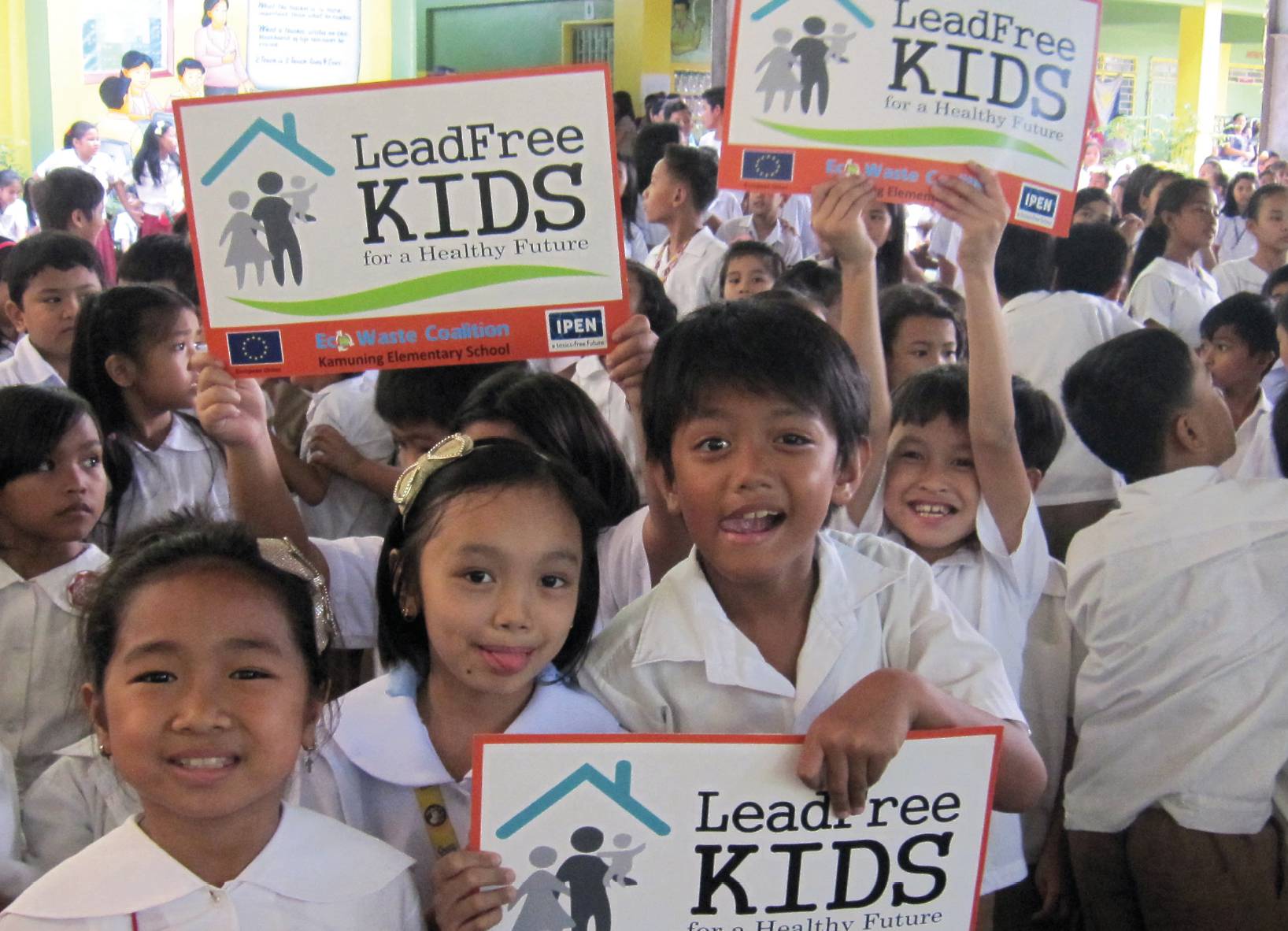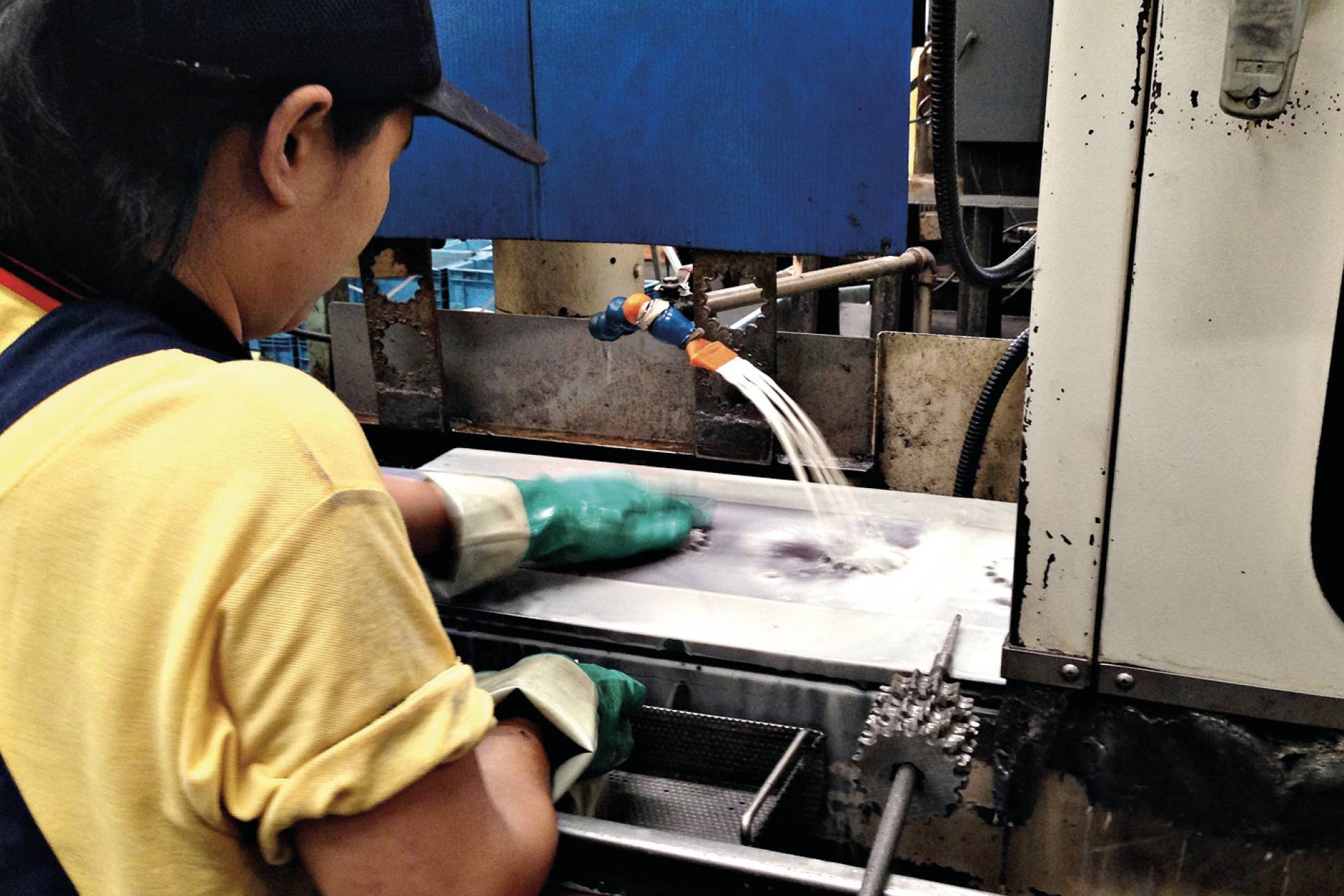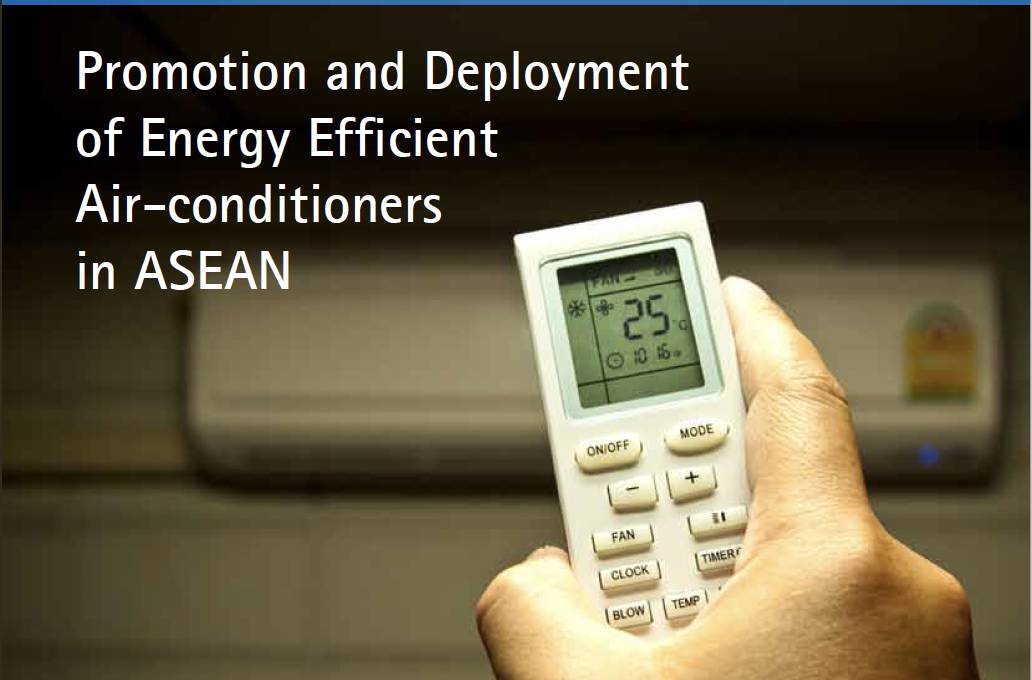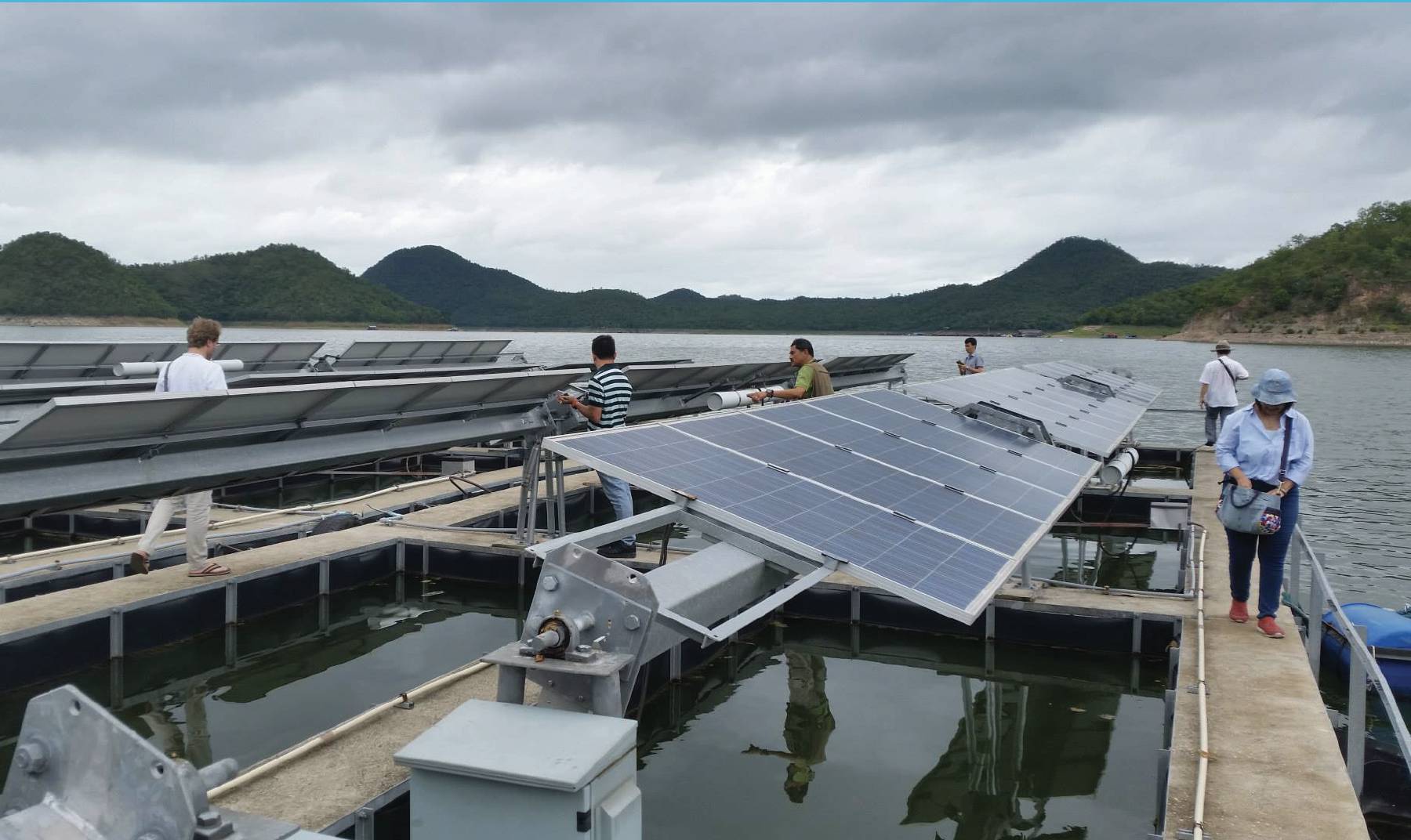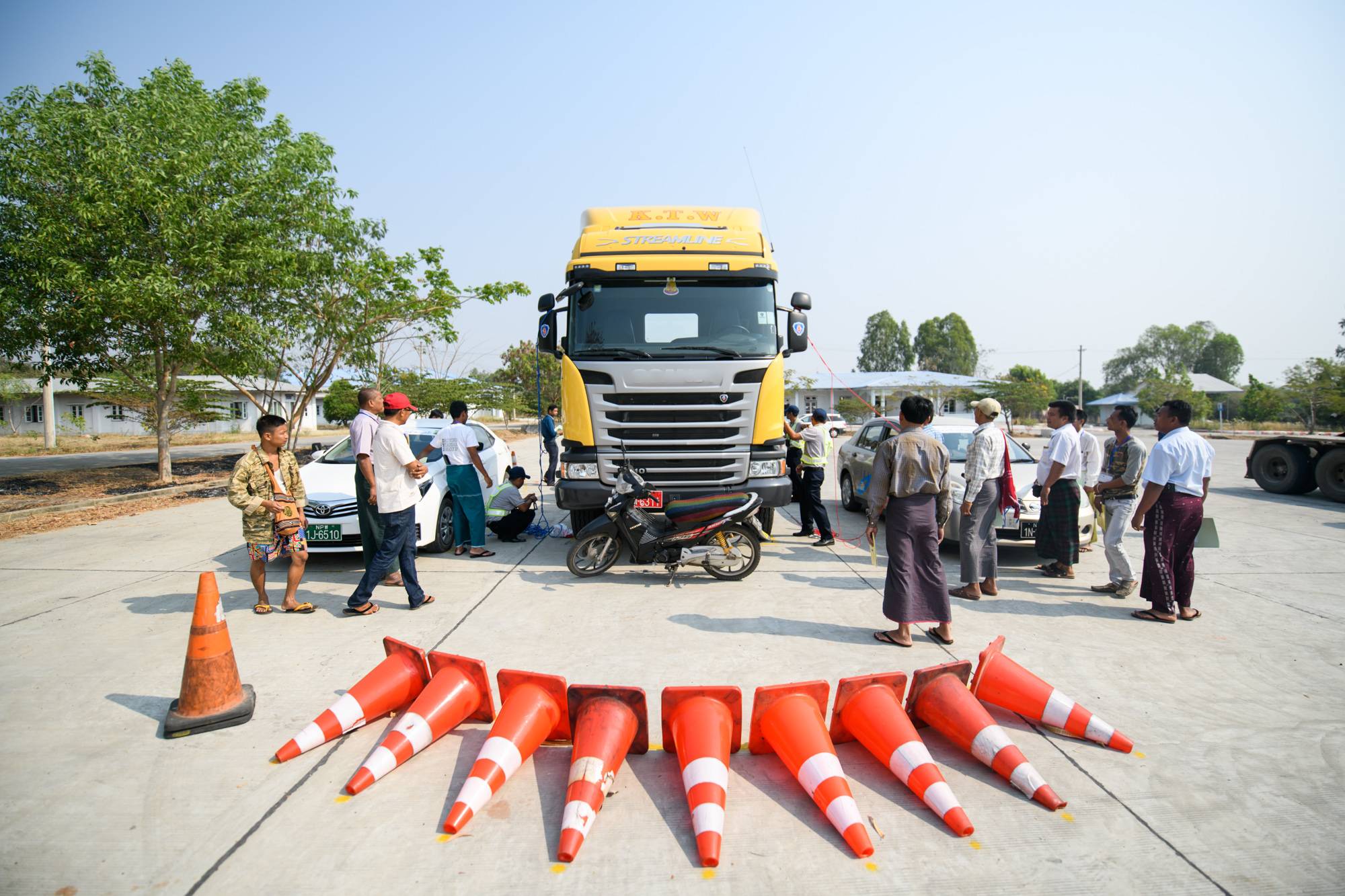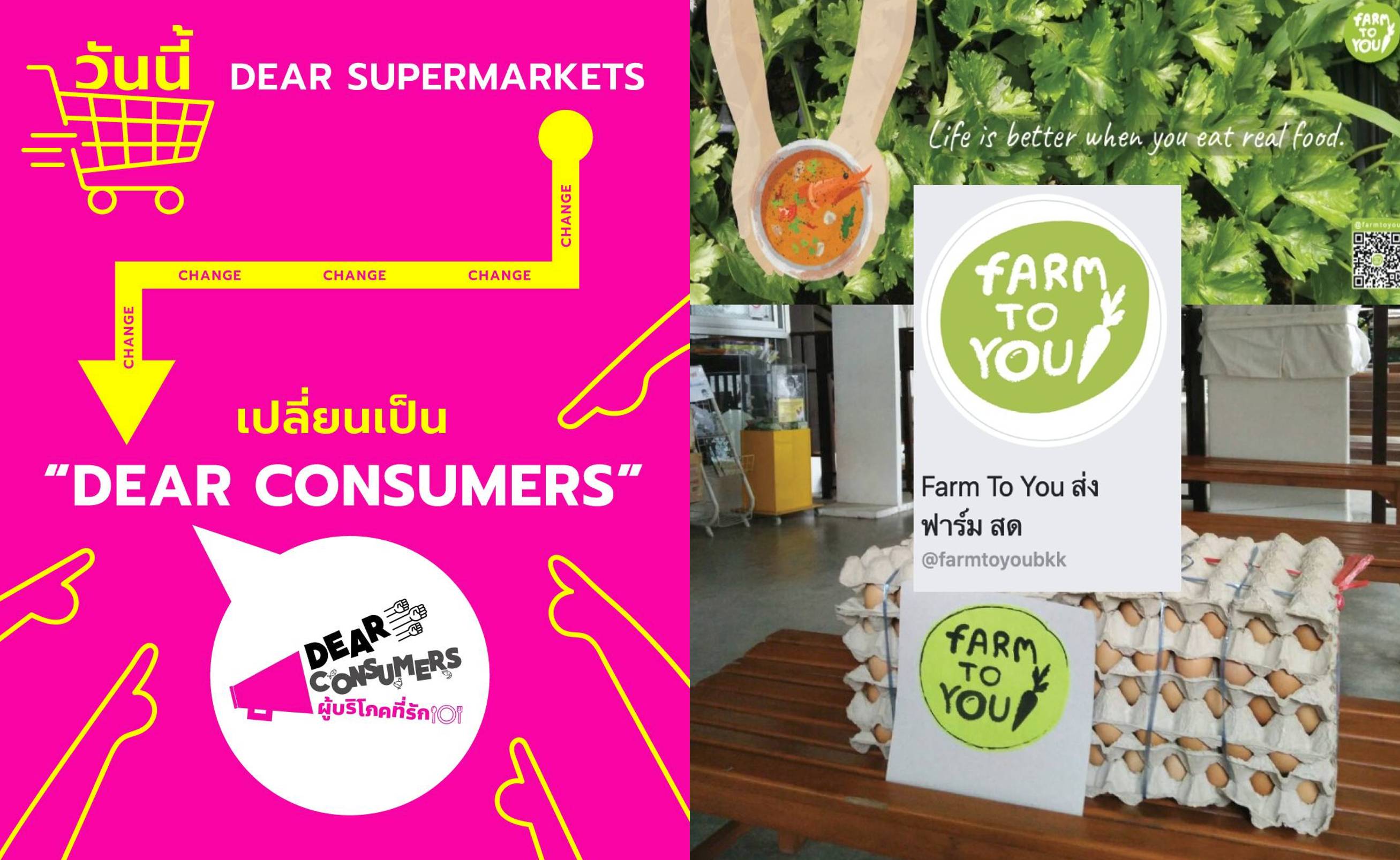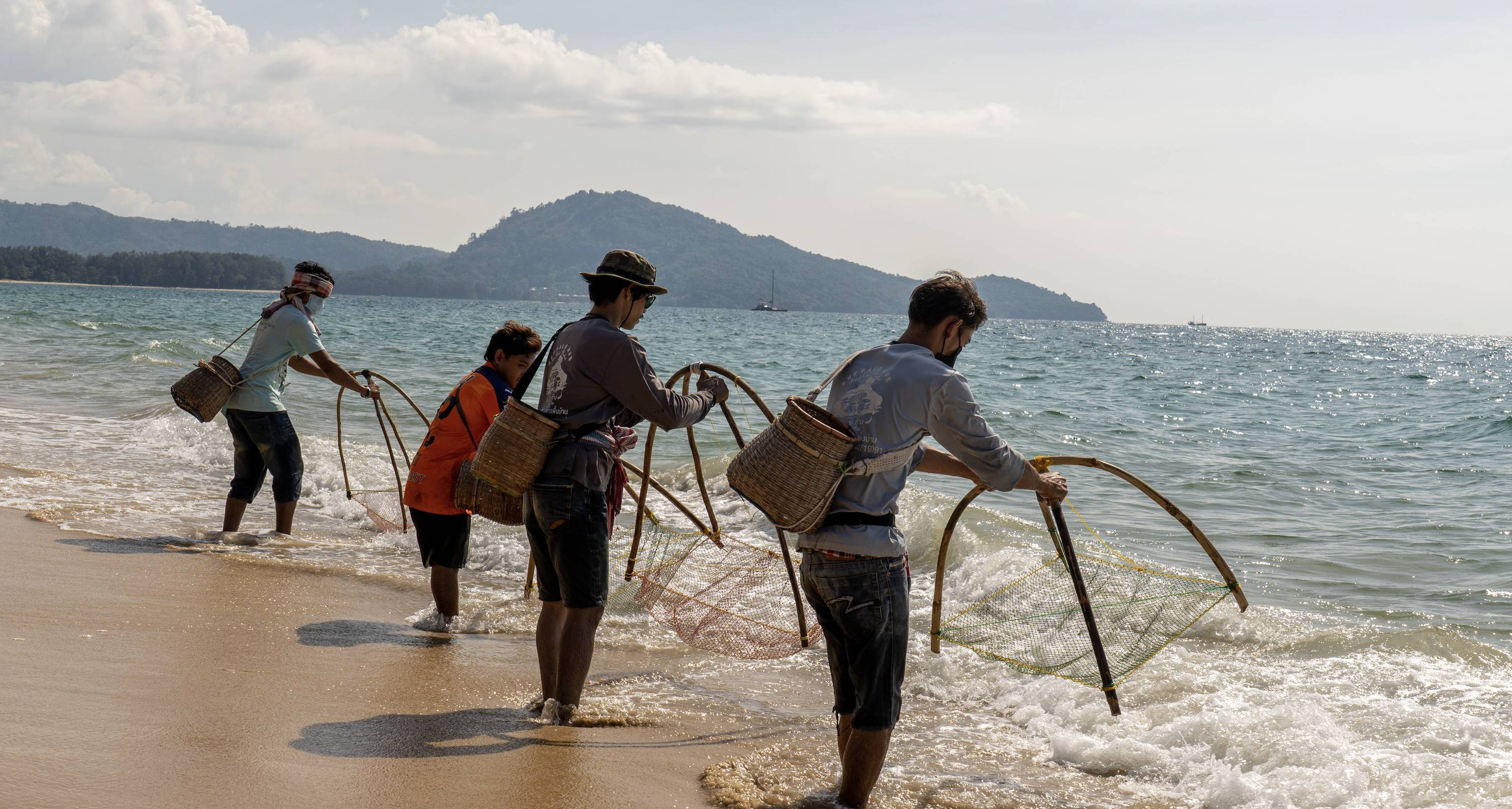
SCP Context
Thailand has long embraced the Sufficiency Economy Philosophy, which has guided its approach to sustainable consumption and production (SCP). To strengthen national efforts and raise awareness, the government developed the Sustainable Consumption and Production Roadmap 2017–2037[1], providing strategic direction and policy guidance. SCP implementation is further supported by the 13th National Economic and Social Development Plan 2023–2027[2], which aligns with the 20-Year National Strategy 2018–2037[3]. These efforts are also consistent with the Bio-Circular-Green (BCG) Economy Action Plan 2021–2027[4], the Circular Economy Innovation Ecosystem Vision for 2030 (2022–2030)[5], and Thailand’s Roadmap on Plastic Waste Management 2018–2030[6]. In addition, the country has implemented the Second National Action Plan on Waste Management 2022–2027[7] and the Third Phase of the Action Plan on Green Public Procurement Promotion 2021–2027[8]. Thailand is also preparing new legislation, including the Sustainable Packaging Management Act[9], the Waste Electrical and Electronic Equipment Management Act, and the Circular Economy Promotion Act, to further advance its transition toward sustainable and circular practices.
Connection to the Global Agenda
Thailand has laid a strong foundation for achieving the Sustainable Development Goals (SDGs) by integrating them into its 20-Year National Strategy, the country’s primary development framework. The National Committee for Sustainable Development (CSD), chaired by the Prime Minister, serves as the central mechanism for driving progress across all 17 Goals, guided by the Sufficiency Economy Philosophy. Thailand has showcased its commitment and progress through its Voluntary National Reviews (VNRs) presented at the High-Level Political Forum in 2017, 2021[10] and 2025[11]. The country further demonstrates its ambition in waste management and environmental protection by being a party to key international agreements, including the Basel, Stockholm, Rotterdam, Minamata, and Paris Conventions.
A key solution to Climate Change
Thailand has joined the global effort to combat climate change by becoming a Party to the UNFCCC in 1994 and the Paris Agreement in 2016, committing to reduce GHG emissions and adapt to climate impacts. The updated Nationally Determined Contribution (NDC) targets a 30% unconditional and 40% conditional emissions reduction by 2030 compared to the business-as-usual scenario.[12] Thailand submitted its revised Long-Term Low Emission Development Strategy (LT-LEDS) in 2022[13] , along with its first Biennial Transparency Report[14] to demonstrate progress toward NDC goals. The country’s strong commitment is further demonstrated through the development of its first National Adaptation Plan (NAP)[15], aligned with Climate Change Master Plan 2015–2050[16], and related economic plans. Thailand aims for carbon neutrality by 2050 and net zero emissions by 2065, supported by the development of a Climate Change Act[17] and Thailand Taxonomy[18].
Priority sectors
- Scale up the Bio-Circular-Green (BCG) Economy model nationwide by promoting sustainable business practices, providing regulatory support, tax incentives, access to technology, and encouraging circular economy promotion.
- Strengthening enforcement, public education, and infrastructure to improve waste sorting systems.
- Ensure effective and sustainable waste management through food donations, legal protections for donors and volunteers, and tax incentives for food waste recycling.
- Focus on Extended Producer Responsibility (EPR) laws, particularly sustainable packaging management and e-waste.
- Promote resource efficiency and renewable energy to support climate mitigation and enhance resilience.
[1] Office of Natural Resources and Environmental Policy and Planning. (2017). Sustainable Consumption and Production Roadmap 2017–2037
[2] Office of the National Economic and Social Development Council. (2023). the 13th National Economic and Social Development Plan 2023–2027
[3] Kingdom of Thailand. (2018). 20-Year National Strategy 2018–2037
[4] National Science and Technology Development Agency (NSTDA). (2022). Bio-Circular-Green (BCG) Economy Action Plan 2021–2027 Summary
[5] Office of National Higher Education Science Research and Innovation Policy Council. (2022). Circular Economy Innovation Ecosystem Vision for 2030
[6] Pollution Control Department. (2019). Thailand’s Roadmap on Plastic Waste Management 2018–2030
[7] Pollution Control Department. (2022). Second National Action Plan on Waste Management 2022–2027
[8] Switch Asia SCP Facility. (2021). Mainstreaming Green Integration of Thailand: Transformation from Policy to Implementation
[9] Pollution Control Department. (2024). Draft Sustainable Packaging Management Act
[10] Kingdom of Thailand. (2021). Thailand’s Voluntary National Review 2021
[11] Kingdom of Thailand. (2025). Thailand’s Voluntary National Review 2025
[12] NDC Partnership - Thailand Website
[13] Office of Natural Resources and Environmental Policy and Planning. (2022). Thailand's Long-Term Low Emission Development Strategy (LT-LEDS) 2022
[14] Kingdom of Thailand. (2024). Thailand's first Biennial Transparency Report
[15] Kingdom of Thailand. (2023). Thailand's National Adaptation Plan (NAP)
[16] Office of Natural Resources and Environmental Policy and Planning. (2014). Climate Change Master Plan 2015–2050
[17] GIZ. (2024). Thailand's First Climate Change Act Strengthened Through Public Hearing, Affirms its Progressive Milestone
[18] Climate Bonds Initiative. (2023). Thailand Taxonomy Phase I
A look back at milestones that shaped our work
2018
SCP Facility
- Preliminary assessment of SCP related policies, activities, needs/gaps, and opportunities.
Regional Policy Advocacy Component (RPAC)
Facilitated the participation of Thai key-stakeholders in the following regional/ sub-regional activities:
- Asia Pacific Low Carbon Lifestyles Challenge (19-22 Mar 2018), hosted by Thailand, regional level
- Transforming Asia Pacific: Innovative Solutions, Circular Economy and Low Carbon Lifestyles (17-19 Sep 2018), hosted by Thailand, regional level
- Asian Circular Economy Leadership Academy (3-8 Dec 2018), hosted by Thailand, regional level
2019
SCP Facility
- In line with first demand, support was provided to 4 local authorities on mainstreaming SCP in local management, focusing on waste management at local municipality level and greening schools;
- A multi-stakeholder consultation on SCP and Circular Economy through sustainable tourism and food waste was organised on 12 July 2019;
- A new demand was received from the National Focal Point to further mainstream Green Integration in Thailand with a focus on green products and services.
- A concept note with specific actions and timeline has been prepared and the term of reference for experts will be prepared in early 2020.
Regional Policy Advocacy Component (RPAC)
Facilitated the participation of Thai key-stakeholders in the following national activity:
- Awareness raising campaign on “Green Mobility and SCP” - This event was organised back-to-back with the 2019 World Environment Day (WED) and it focused on “Beat Air Pollution” (5 Jun 2019), Thailand, national level
Facilitated the participation of Thai key-stakeholders in the following regional/sub-regional activities:
- “Sustainability Reporting – Thinking Circular Economy by Businesses” - This event was organised back-to-back with 2019 Asia Pacific Forum on Sustainable Development (27 Mar 2019), hosted by Thailand, regional level
- Businesses Accelerating Inclusive Green Economies – "Leaving No One Behind” - Side event on the Responsible Business and Human Rights Forum co-organised by the Royal Thai Government, OECD, United Nations Development Programme (UNDP), ESCAP, International Labour Organization (ILO) and with the participation of the UN Working Group on Business and Human Rights (11 Jun 2019), hosted by Thailand, regional level
- 2019 Southeast and Northeast Asia Policy Dialogue and Training on “Harmonizing SPP practices and Measuring SPP benefits” - The activity took place in parallel with a series of events related to green procurement organized by the China Environmental United Certification Center (CEC) (23 - 25 Oct 2019), hosted by China, regional level
- WEBINAR: SDG 12.1 Reporting for SWITCH-Asia Countries – Connecting the dots between actions and reporting (5 Nov 2019), regional level
- Policy Dialogue on SDG12 Reporting (21 Nov 2019), hosted by Vietnam, regional level
- 2019 SWITCH-Asia Leadership Academy on Circular Economy (2-6 Dec 2019), hosted by China, regional level
- "Supporting decision making on SCP through training on Sustainable Procurement” - This event was organised back-to-back with International Conference on Sustainable Energy and Green Technology 2019 (11 Dec 2019), hosted by Thailand, regional level
2020-2021
SCP Facility
Collaboration with the National Focal Point, the Ministry of Natural Resources and Environment, for the SCP Facility to implement the following activities:
- Green products and services policies and criteria were reviewed, and presented the recommendations on G/SPP criteria in terms of clustering the environmentally friendly products and services into various groups.
- Green Integration Policy and the National Green Directory framework developed and officially endorsed, in consultation with concerned government agencies and stakeholders and through demonstration projects in pilot areas.
- Coordination with GIZ Advance SCP on GPP Implementation and the Thai SCP Network.
2020
Regional Policy Advocacy Component (RPAC)
Facilitated the participation of Thai key-stakeholders in the following national activities:
- WEBINAR: WED2020 Thailand 2020 and Beyond – The event was proposed as a part of the 2020 World Environment Day (WED) celebration which focused on “SCP and Biodiversity Conservation” (5 Jun 2020), Thailand, national level
Facilitated the participation of Thai key-stakeholders in the following regional/sub-regional activities:
- SWITCH2Green Meeting - RPAC initiated the discussion and shared the first report in 2020. (April 2020)
- MOVING THE NEEDLE ON CLIMATE CHANGE – The event was co-organised by the UNESCAP as a part of the 2020 Virtual United Nations Responsible Business and Human Right Forum (RBHRF) (10 Jun 2020), regional level
- WORLD ENVIRONMENT DAY 2020 – A media kit was provided to call for action to promote SCP as a part of the 2020 World Environment Day (WED) celebration (5-7 Jun 2020), regional level
- Intervention in regional forum: Webinar on Sustainable Lifestyles for Plastics & Packaging Waste Management During a Pandemic COVID-19 (6 Aug 2020), regional level
- SCP in Tourism: Opportunities and Challenges with COVID-19 (8 Oct 2020), regional level
- Innovation and Connectivity through Farm to Fork (13 Nov 2020), regional level
- Sustainable Lifestyles for SCP (19 Nov 2020), regional level
- Support to Steering Committee of SWITCH-Asia – Provide support for the annual Steering Committee Meeting to review each country proposed 2021 workplan (3 Dec 2020), regional level
- Regional Policy Dialogue on Circular Cities (4 Dec 2020), regional level
- Regional Dialogue Driving Mechanisms for Eco-Design in Asia (9 Dec 2020), regional level
- Leadership Academy on Circular Economy 2020 (14-18 Dec 2020), regional level
- Webinar: Innovations & Startups (16 Dec 2020), regional level
2021
Facilitated the participation of Thai key-stakeholders in the following national activity:
- World Environment Day 2021 Thailand - The event was proposed as a part of the 2021 World Environment Day (WED) celebration which focused on “Ecosystem restoration” (4 June 2021), Thailand, national and regional level
Facilitated the participation of Thai key-stakeholders in the following regional/sub-regional activities:
- Contextualising the Circular Economy for Action (4 Feb 2021), regional level
- Virtual Consultation: Mapping SCP in ASEAN Countries (17 March 2021), sub-regional level
- Technology for Circular Economy: A Prologue to the 2021 SWITCH-Asia Leadership Academy (25 March 2021), regional level
- Circular Economy and Sustainable Lifestyles Course (18 May 2021), regional level
2022
SCP Facility
- Online vendor list registration system developed and integrated into the National Green Directory platform, in cooperation with the Pollution Control Department (PCD) and the Federation of Thai Industries (FTI).


